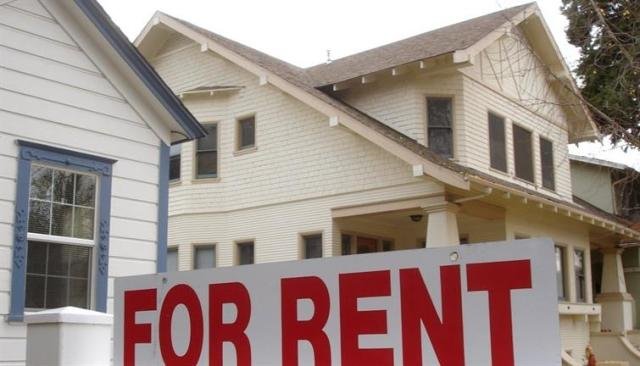Building a successful resident referral program is an excellent way to leverage your existing residents as brand ambassadors and attract new tenants to your property. Here are ten effective ways to establish and enhance a resident referral program:
1. Clear and Incentivized Structure
One of the foundational elements of a successful resident referral program is to establish a clear and incentivized structure. It is crucial to transparently define the terms and conditions of your program, ensuring that residents have a comprehensive understanding of how it works and the benefits they can reap from successful referrals.

To motivate residents to actively participate in the resident referral program, it’s essential to offer attractive incentives. Consider providing diverse and appealing rewards, such as enticing rent discounts, gift cards, or other valuable perks. The allure of the reward plays a pivotal role in encouraging residents to become enthusiastic advocates for your community. Remember, the more irresistible the incentive, the greater the motivation for residents to engage in the referral process.
By emphasizing a transparent and appealing structure, you lay the groundwork for a resident referral program that not only attracts new tenants but also fosters a sense of enthusiasm and engagement among your current residents. This clarity ensures that participants fully grasp the program’s benefits and are motivated to actively contribute to its success.
2. Streamlined Referral Process
To begin with, prioritize simplicity and user-friendliness when designing the referral process. In the digital age, leverage technology to your advantage by creating an online platform or utilizing mobile apps. This not only makes it convenient for residents to submit referrals but also aligns with contemporary preferences for quick and accessible interactions.
Incorporate features that facilitate effortless referral submissions, reducing the need for complex steps. A user-friendly interface, clear instructions, and intuitive navigation contribute to a positive experience for your residents. Remember, the more straightforward the process, the more likely residents are to actively participate in your resident referral program.
3. Comprehensive Promotional Materials
Begin by investing time and creativity in developing promotional materials that captivate attention. These materials should not only be visually appealing but also articulate the advantages of participating in the resident referral program. Utilize engaging graphics, compelling messaging, and a clear call to action to motivate residents to take part in the initiative.

Extend the reach of your promotional campaign by employing a variety of mediums. Distribute physical materials such as flyers and posters strategically placed within your community’s common areas. This ensures that residents encounter the information regularly, reinforcing the program’s visibility.
Incorporate a digital dimension into your promotional strategy by creating compelling online content. Leverage social media platforms, community websites, and email newsletters to disseminate information about the resident referral program. Digital content not only extends your reach but also allows for interactive elements, such as referral links and shareable graphics, amplifying the program’s impact.
4. Sustained and Engaging Communication
Establish a cadence of regular updates through diverse communication channels. Utilize newsletters as a platform to share updates, success stories, and any enhancements or additions to the resident referral program. This not only reinforces awareness but also keeps residents engaged and informed about the evolving nature of the program.
Leverage the power of email communication to deliver targeted messages directly to residents’ inboxes. Craft personalized and compelling emails that highlight the benefits and rewards associated with successful referrals. Include visuals, testimonials, or even exclusive offers to amplify the appeal of the resident referral program.
Incorporate community meetings into your communication strategy to provide face-to-face interactions. These meetings offer an opportunity to discuss the resident referral program in detail, address any queries or concerns, and foster a sense of community engagement. Additionally, consider integrating the program updates into these gatherings to maintain a consistent focus on its importance.
Implement a proactive reminder system to periodically reinforce the benefits of participating in the resident referral program. Send targeted reminders through various channels, such as text messages or app notifications, to ensure that the program remains top-of-mind for residents. Highlighting the tangible rewards they can earn serves as a powerful motivator.
5. Strategic Customization of Incentives
To create a meaningful connection between incentives and your property’s unique selling points, take a personalized approach. Understand the distinct attractions of your community, whether it’s a state-of-the-art fitness center, scenic views, or exclusive amenities. Tailor the incentives accordingly to resonate with residents on a personal level. For instance, if fitness is a standout feature, consider offering gym memberships, fitness gear, or wellness packages as rewards.
Explore the power of variety in your incentive offerings. While financial incentives like rent discounts are universally appealing, consider incorporating experiential rewards that amplify the lifestyle your property offers. This could include exclusive access to events, spa treatments, or even partnerships with local businesses that align with the interests of your diverse resident base.
Introduce an element of excitement and urgency through seasonal or time-limited promotions. This not only injects a sense of immediacy into the resident referral program but also creates a buzz within the community. Whether it’s a summer-themed promotion or a holiday-inspired incentive, the temporal nature of these offerings can drive increased participation.
Harness the potential of resident feedback to fine-tune your incentive strategy. Conduct surveys or engage in one-on-one conversations to understand the preferences and desires of your residents. This valuable input can help refine your resident referral program, ensuring that the incentives offered are not only attractive but also genuinely resonate with the community.
6. Recognition and Rewards for Top Referrers
Publicly acknowledge and reward residents who consistently participate in the resident referral program by referring new tenants. This recognition can be elevated through a dynamic leaderboard showcasing the top referrers, a monthly newsletter feature that highlights their contributions, or even a special event dedicated to celebrating their achievements in driving community growth through referrals.

In addition to public recognition, consider offering exclusive perks and rewards specifically tailored for participants in the resident referral program. This approach aims to not only acknowledge their efforts but also to foster healthy competition among residents, inspiring them to actively engage in the referral initiative.
By implementing such incentives within the resident referral program, you create a more enticing environment that encourages residents to become advocates for your community, ultimately contributing to its expansion and success.
7. Social Media Integration
Leverage the power of social media platforms to amplify your resident referral program. Encourage residents to share their positive experiences and unique referral links across their social networks.
Create a distinctive hashtag dedicated to your resident referral program, not only to facilitate easy tracking but also to spotlight success stories and foster a sense of community pride.

8. Referral Events
To further enhance the allure of these events, consider integrating engaging games or activities that cleverly showcase the myriad benefits of living in your community. These could include themed contests, interactive showcases of community amenities, or even collaborative projects that highlight the unique lifestyle your residential space offers. By making the resident referral program a central focus of these activities, you create an environment where residents naturally become ambassadors of the community’s distinctive charm.
The interactive nature of these events facilitates organic conversations among attendees, allowing them to share personal anecdotes and highlight the aspects of community living that resonate most with them. This peer-to-peer influence is a powerful tool, as it adds authenticity to the referral process and encourages prospective residents to envision themselves as part of the vibrant community narrative.
Additionally, hosting specialized referral events provides an opportunity to recognize and reward residents for their contributions to the community’s growth. Implement creative incentives or acknowledgment ceremonies during these gatherings to show appreciation for those who have actively participated in the referral program. By doing so, you not only reinforce a culture of positive reinforcement but also motivate other residents to engage more actively in the referral initiative.
9. Regular Evaluation and Adjustment
To guarantee the enduring success of your resident referral program, it is imperative to institute a system of regular evaluations. This involves meticulous monitoring of key performance metrics, including but not limited to the number of referrals generated, conversion rates from referral to lease, and the overall success of the program in fostering a sense of community.
One crucial aspect of this evaluation process involves actively seeking feedback from residents who have participated in the referral program. Their insights and experiences provide valuable qualitative data that can illuminate the program’s strengths and weaknesses. By understanding the resident perspective, you gain a nuanced understanding of the program’s impact and identify areas for improvement.
Armed with this resident feedback, it becomes possible to make informed adjustments to the resident referral program. Whether it’s streamlining the referral process, enhancing incentives, or addressing specific concerns raised by participants, these adjustments contribute to the program’s adaptability. In essence, the program becomes dynamic and responsive to the evolving needs and preferences of your community.
This iterative approach to program management not only ensures its continued relevance but also fosters a sense of inclusivity and engagement among residents. By actively involving them in the evaluation and adjustment process, you demonstrate a commitment to their experience and satisfaction, reinforcing the community bonds that the referral program aims to cultivate.
10. Partnerships with Local Businesses
Strengthen your resident referral program by establishing strategic partnerships with local businesses. Explore opportunities for joint promotions or additional rewards from these businesses, creating a mutually beneficial arrangement that enhances the appeal of your property and positively contributes to the local community.

By aligning the resident referral program with local businesses, you not only expand the range of rewards available but also create a sense of interconnectedness between your property and the broader community, further reinforcing the value of resident referrals.
In conclusion, fostering a thriving community involves more than just providing excellent amenities and services; it’s about creating a sense of belonging and engagement. A resident referral program serves as a powerful tool in achieving this goal. By seamlessly integrating social media, hosting engaging events, regularly evaluating and adjusting strategies, and forging partnerships with local businesses, you can take your program to new heights.
In essence, the success of a resident referral program lies in its adaptability and responsiveness to the evolving dynamics of your community. The key is not just to create a program but to cultivate a culture of enthusiasm and camaraderie among residents. With these 10 ways to build a successful resident referral program, you’re not just encouraging word-of-mouth recommendations; you’re creating a living, breathing community where residents actively contribute to its growth and prosperity.










